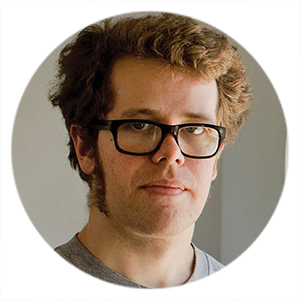He WhakaaroResilience in a time of uncertainty
Apr 3, 2016

Nā Matt Scobie
“Preparation for the future begins with lessons from the past.” – Fuluna Tikoidelaimakotu Tuimoce
 These were the wise words of a young Fijian speaker, talking about the importance of preserving traditional canoe-building knowledge when thinking about climate change. I was sitting in the UNESCO building in Paris late November of 2015 at the United Nations Climate Change Conference entitled “Resilience in a Time of Uncertainty: Indigenous Peoples and Climate Change.” I attended as someone who is worried about the consequences of climate change on my generation as well as those of the future – not just for our environment, but for our economy, society, and most importantly, culture.
These were the wise words of a young Fijian speaker, talking about the importance of preserving traditional canoe-building knowledge when thinking about climate change. I was sitting in the UNESCO building in Paris late November of 2015 at the United Nations Climate Change Conference entitled “Resilience in a Time of Uncertainty: Indigenous Peoples and Climate Change.” I attended as someone who is worried about the consequences of climate change on my generation as well as those of the future – not just for our environment, but for our economy, society, and most importantly, culture.
The theme of the hui (also known as COP 21) was promoting the recognition and respect of traditional knowledge in fighting against and adapting to climate change. There was agreement that bringing indigenous knowledge and indigenous people into decision-making and policy development in affected areas was key to confronting the crisis in the coming years.
I was upset that there were no Māori speakers, as I think we have some important kōrero to share with our friends around the world. Despite this absence, several speakers made reference to the work of Māori and Ngāi Tahu around the recognition of indigenous knowledge. One speaker from Hawaii, Mervyn Tano, stressed the importance of incorporating Western scientific knowledge into traditional knowledge systems, rather than vice versa, and used the concept of taonga as an example of this. Ben Orlove from the US spoke of the value in recognising indigenous naming of mountains and other landmarks in considering climate impacts. He used Aoraki as an example. There was a young speaker from Samoa, Carinnya Feaunati who shared her story of helping rebuild a village after Cyclone Evan. Carinnya found that traditional knowledge from village elders helped scientists map the effects of climate change on the shorelines over previous decades.
Other sage advice came from Ann Marie Chischilly (Navajo/Diné) who spoke beautifully about the work of Native American tribes in developing climate change resilience plans. She spoke of the anguish felt when her daughter suggested that they might forget certain aspects of their culture, and stressed the fundamental need to preserve this at all costs. She believes that, in confronting the issues we face, we need to find a child to mentor, a colleague to share the load with, and an elder to mentor us. Because climate change is, driven by people, it is important that we look beyond the physical impacts to consider the potential human and cultural impacts. What effects will the climate change crisis have on our culture?
Ngāi Tahu defines its environmental vision as being that “our ancestral landscape is protected and our people have living relationships with their whakapapa and traditions through the environment.” This dream is shared by indigenous people all around the globe, from the Saami in the Arctic, to the Kayapo in the Amazon. This was the common link that every person at this hui shared. Despite coming from very different locations, with different values, upbringings, cultures, and aspirations, the importance that we all place on our relationship with the natural environment is the bond we share. The message that came out of the hui was that traditional knowledge and knowledge systems are increasingly being recognised in policy-making. There are three “R”s to remember when confronting the climate crisis together: reciprocity, respect, and reverence for nature. Two weeks after this hui, respect for the knowledge and rights of indigenous peoples relating to climate change was enshrined in the eventual agreement of the COP21.
Hapū and iwi up and down the country are putting together climate change resilience plans, and I believe this is a crucial step in identifying the problems, as well as the solutions. Work done by the Arowhenua Pā and Ngāi Tahu Seafood around climate change mitigation and adaptation is admirable. As we undertake this preparation for the future, inevitably part of our 2050 plan, I wonder, “What lessons we can learn from the past?” This reflection is important for us, but is also important for the world. In the words of Cacique Raoni Metuktire of the Kayapo tribe in the Amazon, the world needs us because we are the guardians of nature.
Matt Scobie is Kāti Huirapa – Ngāi Tahu. He is currently completing PHD study at the University of Sheffield. His research is focused on exploring ways to hold business and government accountable for their wider social and environmental impacts. He is particularly interested in engagement around the operations of extractive industries in areas of importance to indigenous groups.